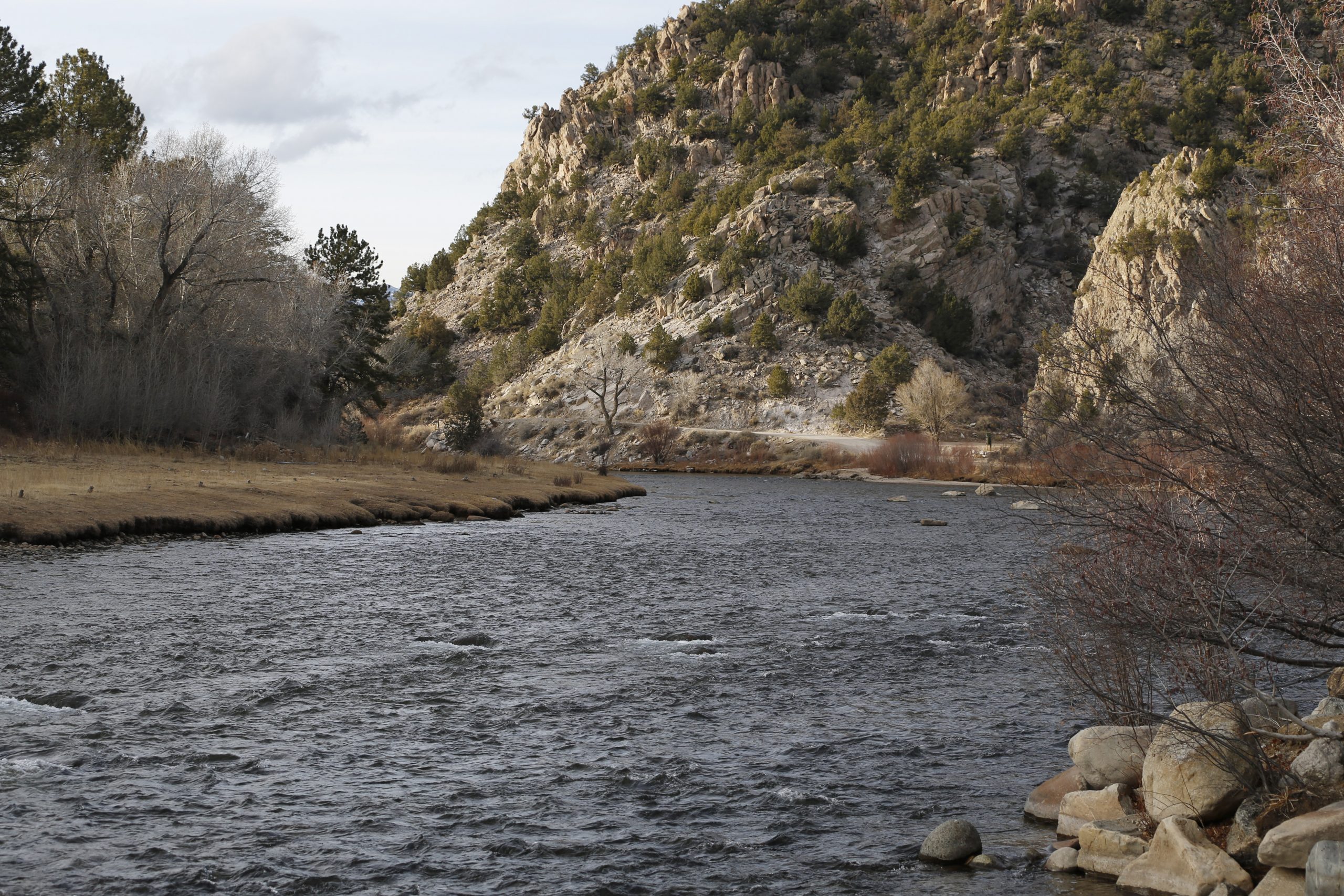
Update on Aug. 4 at 9:50 a.m.: Despite vocal opposition concerned about persistent drought, Chaffee County Commissioners unanimously passed the final version of the bottler's permit. Money from the contract will go to to projects such as affordable housing efforts and forest sustainability. Our original story continues below.
Nestle Waters North America, recently renamed BlueTriton Brands, bottles 65 million gallons of Chaffee County spring water per year.
But the company’s contract to do so, which has been in place since 2009, is now up for renewal and is being met with fierce local opposition.
BlueTriton is one of many water bottlers in the state, and Larry Lawrence, the company’s western region natural resource manager, said the company’s contract replaces the spring water pumped from the county with water acquired from resources diverted to nearby reservoirs for such uses. That replacement is required by the Colorado Division of Water Resources.
As for the amount of water the company bottles each year, it barely registers in the scope of what’s used in the state each year.
Kevin Rein, Colorado’s state engineer and director of the water resources division, said the amount of water used by all of the state’s bottlers, as well as some other types of companies lumped into the same category in state data, amounts to about 5/100ths of 1 percent of the state’s annual water use.
“In relative terms, it’s a very small amount,” Rein said.
But, the proposal comes at a time when parts of Colorado’s Western Slope remain in “exceptional” drought — the most severe classification of drought in the U.S.
Despite reassurances from BlueTriton that it replaces all the water it takes out, the contract still has opponents. Jennifer Swacina with the nonprofit Unbottle and Protect Chaffee County Water said the amount of water bottled by BlueTriton each year is about equivalent to the annual use of 400 homes. Swacina said her part of the state needs all the water it can get.
“It sounds good replacing water, but it's being replaced with water from the Western slope that is in a state of emergency drought,” she said. “It's being sucked out of an aquifer and trucked to Denver and put in plastic bottles. So they're essentially turning water into garbage.”
This year, Chaffee County itself has only dry to moderate drought conditions at this point in the summer. And some of the county is experiencing no drought at all, according to federal researchers. That didn’t stop a group of protesters from pleading their case outside the county courthouse last month, following a split vote from county commissioners giving preliminary approval to the BlueTriton permit extension.
A final vote on the contract is scheduled for August 3. If passed, the company would be awarded a new 10-year permit extension to use the water and bottle it.
Lawrence said BlueTriton’s plan for the water supports the county’s overall sustainability and health-focused goals.
“We make a healthy beverage — one that plays an important role in helping Americans stay hydrated, particularly when away from home,” Lawrence wrote in an email. He also said the company is “leading the industry” in its use of recycled plastic and is investing in new recycling infrastructure.
Swacina said she and other opponents do not estimate their chances of stopping BlueTriton’s permit as being very high. If commissioners do opt to move forward with the approval, she hopes they may consider altering the terms to be more conscious of local resources or to ask for BlueTriton to pay more for the water. However it turns out, she said the fight is worth it, especially since Colorado is likely to continue to see hotter, drier summers.
“I would argue that almost any other use of that precious resource is more beneficial than putting it in plastic bottles and trucking it out of the state,” Swacina said.








